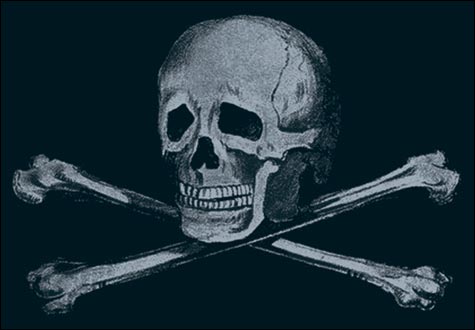
AYE, MATIE!: Talty’s history of Captain Morgan is both informative political history and grand adventure tale. |
Empire Of Blue Water | by Stephan Talty | Crown | 305 Pages | $24.95 The Republic Of Pirates | by Colin Woodard | Harcourt | 328 Pages | $27 |
Each of these books bears a tongue-in-cheekily arcane subtitle. Stephan Talty’s Empire of Blue Water’s continues: “Captain Morgan’s Great Pirate Army, the Epic Battle for the Americas, and the Catastrophe That Ended the Outlaws’ Bloody Reign.” Colin Woodard’s Republic of Pirates prattles pompously on about “Being the True and Surprising Story of the Caribbean Pirates and the Man Who Brought Them Down.” Read in order (Empire first) these histories cover American piracy from its privateering origins following the first British conquest in the Caribbean (Jamaica, 1655) through the violent death of Edward Thatch (a/k/a Blackbeard, 1718) and piracy’s subsequent rapid dénouement.Both authors are journalists, and both volumes are seriously researched (far-flung period documents abound), but Woodard’s Republic is the more traditionally scholarly, in that its chronicle is faultlessly thorough — often telling you far more than you can, or need to, remember. (The litany of captured, renamed, scuttled, and refitted pirate ships is beyond meaning and interest, except perhaps to cranky old men who re-enact naval encounters with toy boats in their bathtubs.) Empire of Blue Water, by contrast, is a sparkling and engrossing adventure narrative presented in the deeper context of international political history. Either is well worth your time. Together they’ll make you a pillaging expert.
Empire focuses on the (usually) sanctioned piracy of Sir Henry Morgan and the buccaneer empire at Jamaica’s Port Royal. That lawless outpost was obliterated by an earthquake in 1692, and the pirates were left to go freelance. Eventually they set up shop at New Providence in the Bahamas, which is where Republic picks up the story.
The books seldom contradict each other. Beyond the particulars and (in Woodard’s case) minutiae of their narratives, they offer a host of revelations about Carribean pirates — way beyond anything Hollywood has ever explored. Among the things you’ll learn:
• Piracy was no bit player in the New World drama. It was an essential factor in keeping Spain from dominating the Americas, and it diminished that country’s status back in Europe. The conquistadors got here first and established a pipeline of Latin American riches to fund the expansion of the Spanish Empire. Piracy interrupted the eastward flow of gold and silver, bankrupting the genetically imperiled Spanish monarchy.
• Before 1800, everything that happened in the New World was a consequence of wars, successions, shifting alliances, and religious upheavals in the Old World. So whether pirates were considered sanctioned soldiers of fortune serving their Mother Country’s interests or renegade bandits depended on the fickle status of Protestant-Catholic rivalry or some such in Europe. Transatlantic communications were, however, ponderously slow, creating a sometimes farcical unsynchronized muddle of cause and effect.
• Pirates were more essentially American, in a post–Revolutionary War/Jeffersonian sense, than any other colonials. Captains were elected by their crews and were blindly obeyed only during battle or pursuit. All other circumstances bore the potential for impeachment. Entire crews voted on their targets and democratically divided their profits in advance of stealing them. Men (and an occasional woman) of all races and persuasions served side by side on pirate vessels.
The history of Caribbean piracy is thus unexpectedly inspiring. The pirates’ thug-manned citizen navies invaded, tortured, and killed without mercy, but no more than did the regulation armies of the day. If the American ideal is based in rebellious self-reliance and individualism, these cutthroats were our true pioneers.
Clif Garboden, a/k/a "Nobeard" can be reached at cgarboden[a]phx.com